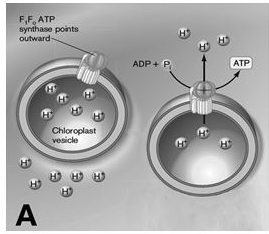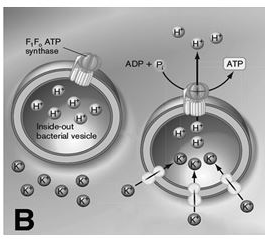While testing the chemiosmotic theory, rescarchers prepared  vesicles from bacterial
vesicles from bacterial
cells, mitochondrial internal membranes, and chloroplast thylakoids. In an inside-out vesicle, the subunit of the proton-ATPase faces outward. Using the figure below, briefly discuss how the
subunit of the proton-ATPase faces outward. Using the figure below, briefly discuss how the
use of inside-out vesicles helped to study the relative contributions of the proton gradient 
and the membrane potential  to
to 


Correct Answer:
Verified
Q25: In dehalorespiration of chlorinated pollutants, the chlorine
Q26: Extreme halophilic archaea exclusively utilize which kind
Q34: Neisseria species use dissimilatory reduction of nitrate
Q37: Nitrifiers are bacteria
A) that generate nitrites or
Q38: The figure below shows anaerobic corrosion of
Q43: Use the figure below to describe Peter
Q45: How does Shewanella oneidensis donate electrons to
Q46: Which of the following definitions is FALSE?
A)
Q59: The organism _ is also known as
Q72: Is the synthesis of ATP by the
Unlock this Answer For Free Now!
View this answer and more for free by performing one of the following actions

Scan the QR code to install the App and get 2 free unlocks

Unlock quizzes for free by uploading documents